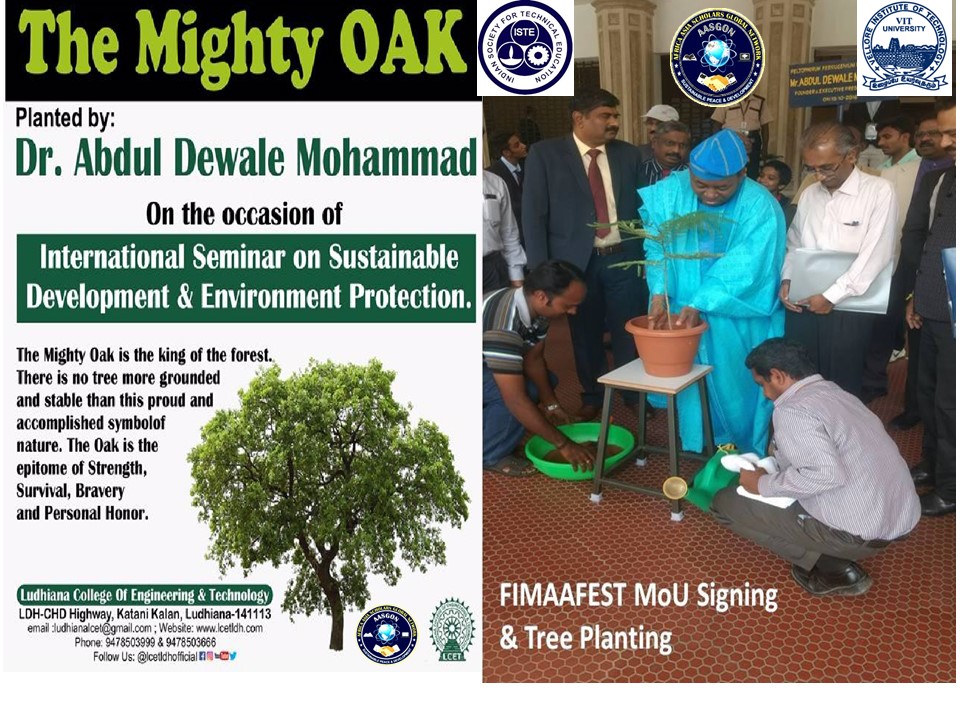CREATING SUSTAINABLE STRUCTURES
AASGON… FACILITATING GLOBAL ENGAGEMENT OF ALL STAKEHOLDERS IN SUPPORT OF THE IMPLEMENTATION OF THE SUSTAINABLE DEVELOPMENT GOALS
With global economic uncertainties showing that the systemic frailties of the existing structures and models of leadership, is impacting the political, academic, corporate, environmental, and social landscape, as corroborated by the London Business School, at its 2013 Global Leadership Summit and correspondingly by the UN Open Working Group of the Post Millennium Development Goals (MDGs) which confirmed that there is a strong and disproportionate emphasis and demand for goals when we have not even built the foundation for sustainable development and that the ‘Current models for development are unsustainable’, it became imminent that to make considerable achievement on the 2030 sustainable development target set by the United Nations, governments and all stakeholders should recognise the fact that the mainstay and ‘Strategic Vision for Post 2015 and Sustainable Development Framework lies in Partnership through the strengthening of Public-Private Partnership (PPP) which was vehemently substantiated by the UN ‘ Heads of State’ High Level Panel declaration in Bali, in 2013.

PPP has taken greater prominence in developing countries as the search for capital to finance infrastructure and other capital projects increases. In order to promote ‘equal partnership of all stakeholders’ which is found to be critical for the success of the 2030 UN Development Goals (UNSDGs), AASGON and the GSEF Strategic Plan of Action (SPA) developed through its intensive research over the years demonstrates the need to leverage on PPP to achieve lasting Sustainable Socio-Economic Development.
PPPs are increasingly envisaged as an attractive proposition for involving the private sector in infrastructure and economic development. It is generically known as a form of cooperation between government and the private sector which sometimes also involves voluntary organizations (NGOs, trade unions) or knowledge institutes – that agree to work together to reach a common goal or carry out specific tasks, while jointly assuming the risks and responsibilities and sharing resources and competences.
Addressing global challenges requires a collective and concerted effort involving all actors. Through partnerships and alliances, we increase our chances of success affirms the UN. In ensuring the realization of the UNSDGS 2030 and the Africa 2063 agenda, as signatory to the UNGC and active member of the UK Stakeholders for Sustainable Development (UKSSD), AASGON welcomes meaningful and productive partnership with all relevant stakeholders across government, the organised private sector and the civil society.
AASGON is committed to ensuring the strengthening of NAASP
On April 22–23, 2005, Asian and African countries renewed their longstanding solidarity at the 2005 Asian African Summit in Jakarta, Indonesia. The 2005 Asian African Summit yielded, inter-alia, the Declaration on the New Asian African Strategic Partnership (NAASP), the Joint Ministerial Statement on the New Asian African Strategic Partnership Plan of Action, and the Joint Asian African Leaders’ Statement on Tsunami, Earthquake and other Natural Disaster. The aforementioned declaration of NAASP is a manifestation of intra-regional bridge-building forming a new strategic partnership commitment between Asia and Africa, standing on three pillars, i.e. political solidarity, economic cooperation, and socio-cultural relations, within which governments, regional/sub-regional organizations, as well as peoples of Asian and African nations interact.
The 2005 Asian African Summit was attended by 106 countries, comprising 54 Asian countries and 52 African countries . The Summit concluded a follow-up mechanism for institutionalization process in the form of Summit concurrent with Business Summit every four years, Ministerial Meeting every two years, and Sectoral Ministerial as well as Technical Meeting if deemed necessary.

